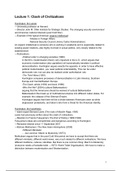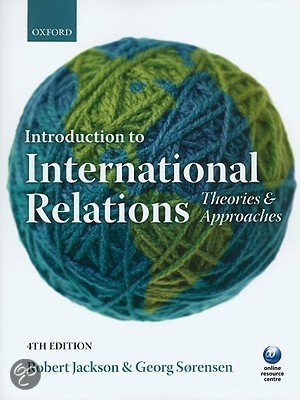Samenvatting
Summary International Relations Midterm Lectures (1-6)
- Instelling
- Universiteit Van Amsterdam (UvA)
This is an extensive summary of the first six lectures of the course International Relations (IR). This course is part of the political science bachelor program at the Univeristy of Amsterdam and is taught by Otto Holman. Good luck!
[Meer zien]





